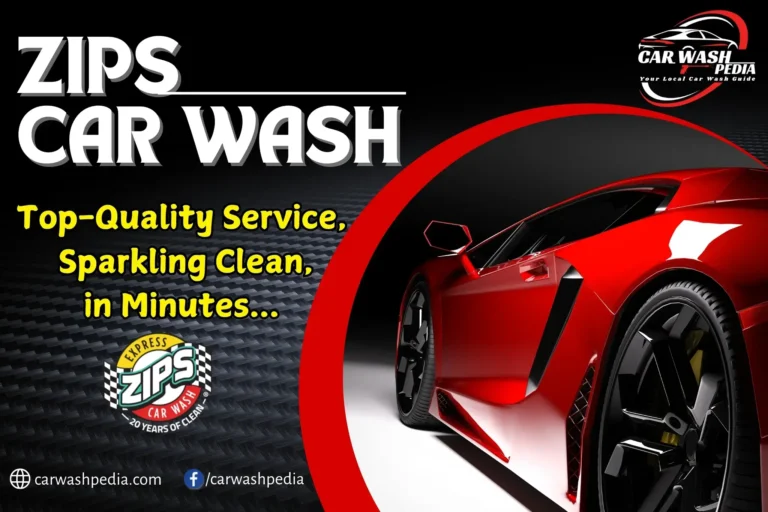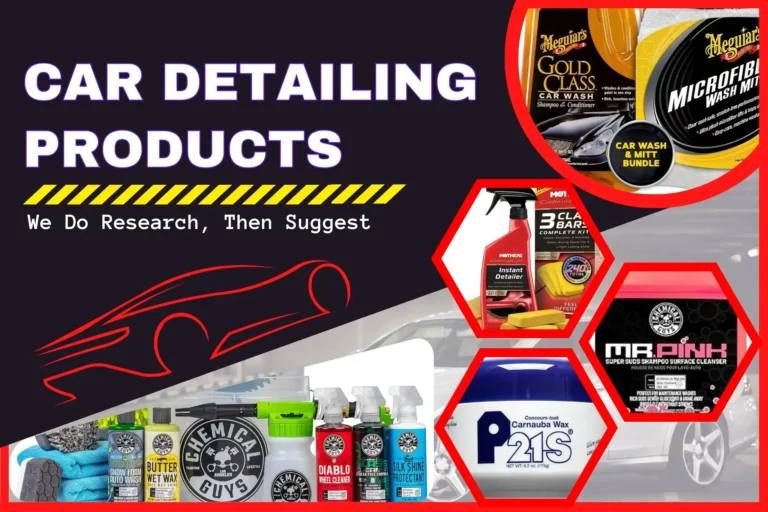Self-Service Car Wash Guide: Save Time, Money and Your Car
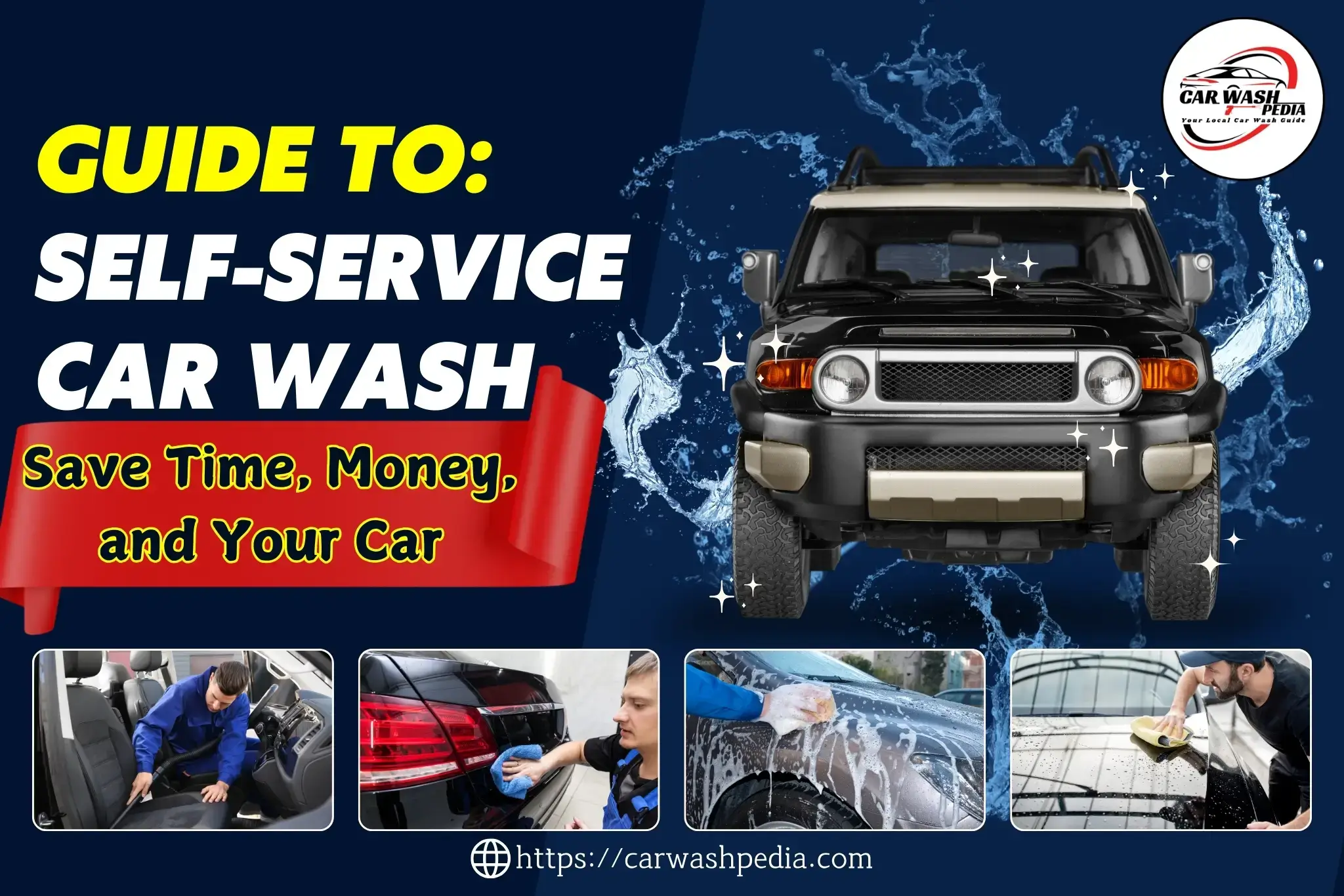
What is a Self-Service Car Wash?
A self-service car wash allows drivers to clean their vehicles themselves using professional-grade equipment. These facilities are equipped with high-pressure hoses, foam brushes, and vacuums, providing everything needed for a thorough clean at a fraction of the cost of a professional service.
The concept of self-service car wash emerged in the 1960s as a cost-effective and convenient alternative to full-service options. It allowed car owners to take control of their vehicle’s cleaning, while also reducing labor costs for businesses. Over the decades, these facilities have become a staple in the car wash industry, offering a hands-on approach for individuals who prefer to wash their vehicles on their own terms.
In recent years, the popularity of self-service car wash has surged, partly due to an increasing focus on cost efficiency and sustainability. These facilities allow users to regulate their water and product usage, making it an eco-friendlier option compared to automatic washes, which often consume more water. This trend aligns with a growing number of car enthusiasts and environmentally conscious consumers seeking a more personal and responsible approach to car care.
Self-service car wash is also known as “Do It Yourself Car Wash” or it can be abbreviated as “DIY Car Wash”.
Who Benefits from Using Self-Service Car Wash?
Self-service car wash caters to a variety of users:
- Budget-conscious drivers: These facilities are perfect for those looking to clean their vehicles without breaking the bank. With the ability to pay for only the time and resources used, self-service washes can be far more economical than automatic or hand-wash services.
- Car enthusiasts: Many people enjoy taking meticulous care of their vehicles, giving them a personal touch. Self-service stations allow for detailed cleaning, from the tires to the interior.
- Environmentally conscious drivers: Self-service car wash typically uses less water and has more eco-friendly detergents available, making it an attractive option for green-minded consumers.
Comparison with Other Types of Car Washes
Compared to other options, self-service car washes offer distinct advantages:
- Touchless Car Wash: Touchless washes rely entirely on water jets and detergents to clean vehicles without physically contacting the car’s surface. While convenient, they can sometimes miss dirt in hard-to-reach spots. Self-service, on the other hand, allows users to target those areas manually.
- Automatic Car Wash: Though faster and more convenient, automatic car washes use fixed cycles, which may not suit all vehicles or situations. Additionally, some automatic washes use stiff brushes that could potentially damage a car’s paint over time.
- Hand Wash: Professional hand washes offer great attention to detail but often come with a high price tag. Self-service washes give similar control at a much lower cost, allowing users to replicate hand-wash quality on their own.
Why Choose a Self-Service Car Wash?
Self-service car wash has become a popular option for vehicle owners who value a mix of affordability, convenience, and control over how their cars are cleaned. Here is why more drivers are choosing this method over others:
Cost-Effectiveness
One of the primary reasons to opt for a self-service car wash is the significant savings it offers. On average, an automatic car wash costs between $10 and $20 per visit, while hand wash services can range from $30 to $100 depending on location and service level. In contrast, self-service car washes often cost only a few dollars per cycle, typically based on a pay-as-you-go model where you insert coins or use a card to activate the equipment. This means you only pay for the time and resources you use, allowing for budget-friendly car maintenance.
This affordability makes self-service car washes particularly appealing to frequent washers or those with larger vehicles that typically incur higher costs at automatic or hand wash facilities. In addition, avoiding the extra fees that come with professional services, such as labor and premium detergents, means you can get quality results at a fraction of the cost.
Flexibility & Convenience
Self-service car washes offer a level of flexibility that other car wash options simply cannot match. These facilities are typically available 24/7, making them a great option for people with busy schedules or those who prefer to clean their vehicles outside of peak hours. Whether you are an early riser who likes to wash your car before the day starts or someone who prefers a late-night scrub, you can use these facilities at your convenience.
Moreover, you can wash your vehicle at your own pace. There is no rush to move through the stages of the wash cycle, unlike automatic washes that dictate the timing of each step. This flexibility allows you to focus more on areas that need extra attention and ensures a thorough clean every time.
Full Control Over the Process
Having full control is one of the biggest perks of using a self-service car wash. You get to manage every step of the cleaning process exactly how you want it, from the initial rinse to applying soap and wax. You decide when to pre-rinse, apply soap, scrub, rinse, and wax, ensuring that your car gets the care it needs based on its current condition. This level of control is especially important for car owners who want to ensure that certain areas, like the undercarriage or wheels, receive extra attention.
Additionally, self-service washes allow you to avoid potential issues that can arise with automatic car washes, such as brushes that can scratch the paint or water pressure that may not be suitable for delicate surfaces. With self-service, you can adjust the pressure and cleaning intensity as needed, ensuring a safer wash.
Customization
Every car is different, and car wash self service gives you the freedom to customize the cleaning process to suit your vehicle’s specific needs. Whether your car is heavily soiled from off-road driving or just needs a quick touch-up, you can tailor your wash. For example, if your car has sensitive areas, like custom paintwork or delicate parts, you can choose to avoid using high-pressure settings or rough brushes.
You also have the option to bring your own cleaning supplies, such as specialized waxes, microfiber towels, or tire cleaners, ensuring that your car gets the exact care you prefer. This makes self-service washes ideal for car enthusiasts who want a personalized cleaning experience and are not satisfied with the one-size-fits-all approach of automatic systems.
How Does a Self-Service Car Wash Work?
Self-service car wash is designed to give drivers the tools they need to wash their vehicles themselves, offering a practical and budget-friendly alternative to automatic or professional washes. If you are new to self-service car wash, here is a breakdown of how it works, the equipment provided, and how to maximize your cleaning efficiency.
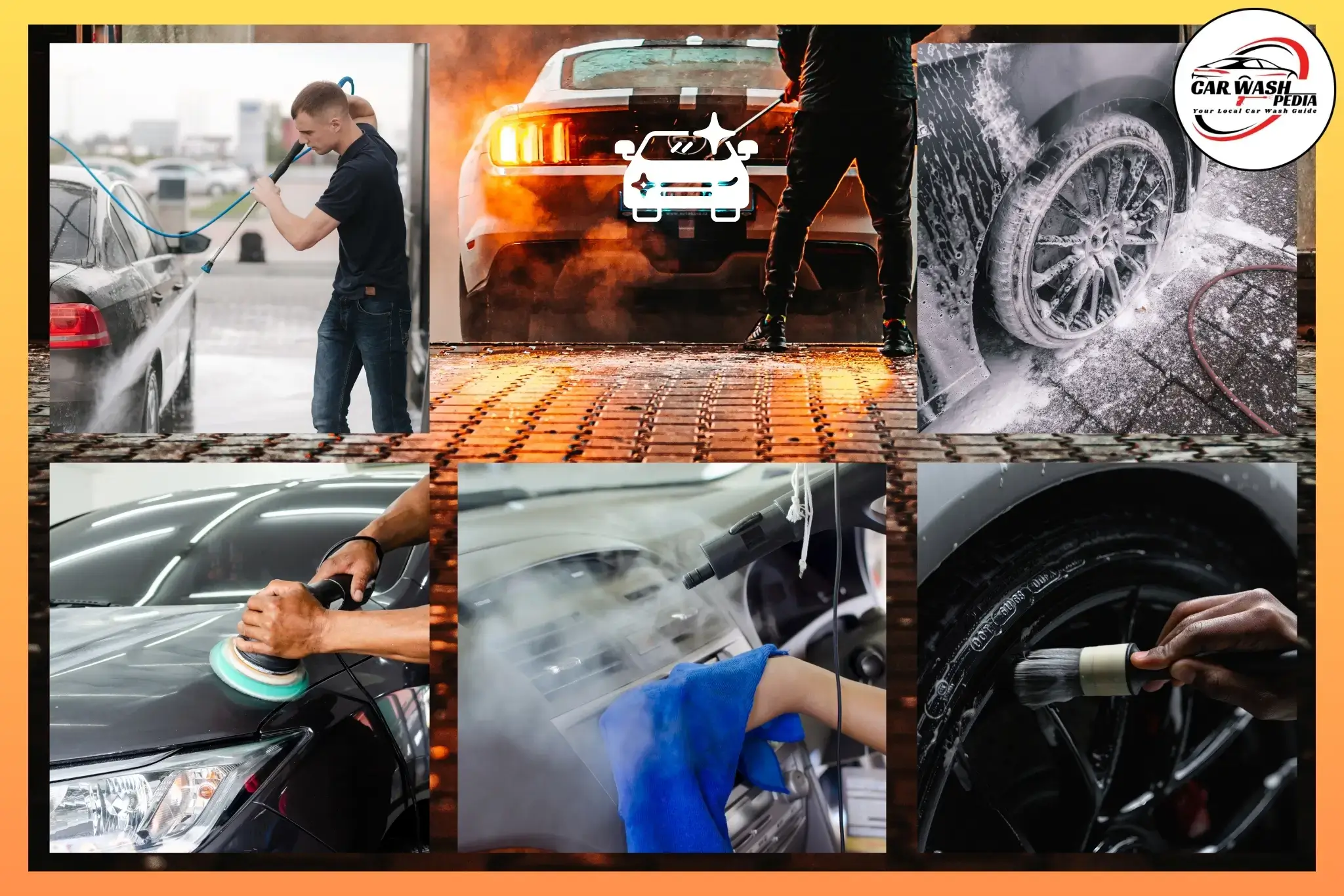
Overview of the Basic Self-Service Car Wash Equipment
Most self-service car washes are equipped with a set of tools designed to help you thoroughly clean your vehicle. These include:
- High-Pressure Spray Wand: This tool is essential for rinsing and removing dirt and debris from your vehicle. It is powerful enough to tackle tough grime but can be adjusted for more delicate areas.
- Foam Brush: A soap-dispensing brush that allows you to scrub the surface of your car, perfect for loosening dirt and grime that the high-pressure spray may miss.
- Vacuum Cleaner: Often available in a separate bay, these powerful vacuums help clean your car’s interior by removing dust, dirt, and debris from carpets and seats.
- Optional Add-ons: Many locations also offer extras like tire cleaners, wax applicators, and even spot-free rinse options to prevent watermarks.
Step-by-Step Process to Get Started
Here is how you can make the most out of your self service car wash experience:
- Prepare Your Vehicle: Before you begin, park your car in the washing bay and make sure you have easy access to all sides of the vehicle.
- Choose Your Wash Setting: Insert coins or a card into the payment machine to activate the wash station. Choose the setting you want to start with (usually a rinse or pre-soak cycle).
- Pre-Rinse: Use the high-pressure spray to rinse the entire car, removing loose dirt and debris. This step ensures you do not scratch the paint when scrubbing.
- Apply Soap with the Foam Brush: Once the car is pre-rinsed, switch to the foam brush. Cover your car in soap, paying attention to dirtier areas like the wheels and lower panels.
- Rinse Again: Switch back to the high-pressure spray to rinse off all the soap, ensuring no residue is left on the surface.
- Wax (Optional): If you want extra protection for your car’s paint, choose the wax option. Apply a light coat to enhance shine and protection.
- Final Rinse: Many self-service car washes offer a “spot-free” rinse as a final step. This is typically deionized water, which prevents water spots from forming as the car dries.
Understanding the Pay-Per-Minute Model
Most self-service car washes operate on a pay-per-minute model, meaning you pay for the amount of time you spend using the equipment. The cost is usually based on time increments, often starting at $2 to $4 for a few minutes, with options to add more time if needed. A display or countdown timer will let you know how much time you have left, ensuring you stay on track.
This model allows you to control your expenses by adjusting how much time you spend on each phase of the wash. The key to maximizing value is being mindful of how long you spend on each task, prioritize the steps that matter most for your vehicle’s condition.
Walkthrough of Typical Wash Cycles
- Pre-Soak or Pre-Rinse: Loosens dirt and grime, preparing the surface for a deeper clean.
- Soap Application: Use the foam brush to scrub dirt away. The foam helps lift dirt while protecting the car’s surface.
- High-Pressure Rinse: Wash off the soap, taking care to reach all areas of the vehicle.
- Wax (Optional): Adds a layer of protection to your paintwork, repelling dirt and water.
- Spot-Free Rinse: Ensures the car dries without streaks or watermarks.
Tips for Getting the Most Out of Your Time and Money
- Plan Your Steps in Advance: Decide how much time you want to spend on each phase (rinse, soap, wax) before starting the wash. This helps avoid wasting time and money.
- Pre-Rinse Thoroughly: Spend time on the pre-rinse to remove large particles of dirt, which will make the scrubbing phase faster and more effective.
- Use the Foam Brush Efficiently: Apply soap evenly across the vehicle, focusing on areas prone to dirt build-up, such as the wheels and undercarriage.
- Bring Your Own Drying Towels: Once you are done, drying your car with a microfiber towel can prevent water spots and leave your car looking professionally finished.
- Vacuum First: If you plan to clean the interior, start with the vacuum before washing the exterior to avoid water splashes inside the car.
Key Benefits of Using a Self Service Car Wash
Car wash self service offers a range of benefits that go beyond simple convenience. They provide users with the ability to clean their vehicles effectively, in an environmentally conscious way, and at their own pace. Here are some of the key reasons why drivers prefer self service car wash:
Environmentally Friendly
One of the biggest advantages of self-service car wash is its eco-friendly nature. Traditional car washes can use a significant amount of water, some estimates suggest that automatic car washes can consume 50 to 70 gallons per wash. Self-service facilities, however, often use high-pressure hoses that are designed to maximize efficiency, significantly reducing water consumption. These high-pressure systems allow users to clean their cars more effectively with less water, making the entire process more sustainable.
In addition to conserving water, many self-service car wash shops offer biodegradable and eco-friendly detergents. These cleaning agents are specifically designed to break down without harming the environment, unlike some commercial-grade soaps that contain harsh chemicals. By choosing a self-service wash, drivers can reduce their ecological footprint while still achieving a clean, polished vehicle.
Hands-On Care
Another major benefit of self service car wash is the ability to give focused attention to specific areas of your vehicle. Unlike automatic washes that follow a fixed cycle, self-service stations allow you to spend extra time on trouble spots. For example, areas like the wheel wells, undercarriage, and bumper can collect more dirt and grime, especially during winter or after off-road driving.
With a self-service wash, you can target these areas, scrubbing and rinsing until they are clean to your satisfaction. This hands-on approach is particularly helpful for cars that require more detailed cleaning, such as SUVs or trucks that may have mud or dirt buildup.
No Waiting in Line
Time is a precious commodity, and waiting in line for an automatic car wash can be frustrating. During busy periods, such as weekends or after a storm, these facilities can be packed with customers, causing long delays. In contrast, self car washes typically have multiple bays available, allowing you to pull in and get started right away. Even during peak hours, the wait times are often shorter because users control their own pace and can finish quickly.
This lack of wait time can make self-service washes especially attractive for busy individuals who do not want to spend a large part of their day maintaining their car.
Ideal for Car Enthusiasts
For people who love cars, the process of washing and detailing is more than just maintenance, it is a form of care and appreciation. Self car wash is ideal for these enthusiasts because they allow for a personalized experience. Car owners can bring their own specialized products, such as microfiber cloths, ceramic wax, or detailing brushes, to create a high-quality finish that cannot be achieved with a quick automatic wash.
Being able to wash, rinse, wax, and detail your car by hand gives you complete control over the result. This attention to detail is why self-service washes are a favorite among car lovers who want to keep their vehicles in pristine condition.
Pro Tips for a Better Self-Service Car Wash Experience
To get the most out of a self-service car wash, there are a few key strategies you can use to ensure your car gets a thorough clean while saving time and effort. Here are some pro tips that can elevate your next self-service car wash experience.
Bring Your Own Supplies
While self-service car wash provides basic cleaning tools, bringing your own supplies can make a big difference in the results. Microfiber towels are a must-have for drying your car without leaving streaks or scratches, unlike standard towels, which can damage the paint. Additionally, bringing detailing brushes can help you clean hard-to-reach areas, such as air vents, emblems, or tight corners on the wheels.
If you have a preferred wax, tire cleaner, or upholstery cleaner, bring those along too. Many self-service car washes offer generic soaps and waxes, but using your own trusted products ensures that your car receives the care it needs. This is especially important for drivers who are particular about maintaining their car’s finish or interior.
Plan Your Wash Cycles
One of the best ways to maximize your time at a self-service car wash is to plan your cycles in advance. Since self-service stations operate on a pay-per-minute model, having a game plan helps you avoid wasting time and money. For example, start with a thorough pre-rinse to remove loose dirt, then move on to the soap application, making sure to cover all areas before switching back to a rinse cycle.
Knowing the order of operations, pre-rinse, soap, scrub, rinse, wax (optional), final rinse, can save precious minutes. By working efficiently and being mindful of the countdown timer, you will get more out of each wash session.
Avoid Peak Hours
Timing your visit is crucial if you want to avoid waiting in line and crowded wash bays. Weekends and after work hours tend to be the busiest times at most car washes, with drivers lining up for a clean car at the start or end of the week. To avoid these rush hours, try visiting during weekday mornings or early afternoons, when there is less traffic and fewer people waiting to use the equipment.
By visiting during off-peak hours, you can take your time washing your car without feeling rushed, and you will likely have more time to focus on detailing and finishing touches after self wash car wash.
Rinse Properly
Rinsing is one of the most important steps in the self-service wash process, but it is also where many people make mistakes. High-pressure water is crucial for removing not only dirt but also leftover soap and wax residue. If the soap is not thoroughly rinsed off, it can leave streaks or even damage the paint over time. Be sure to cover all areas of the car, including the roof, undercarriage, and tires, to ensure no residue is left behind.
When using the high-pressure wand, start from the top of the car and work your way down, as this ensures the water flows over the entire surface and helps the dirt and soap slide off more easily.
Common Mistakes to Avoid During a Self-Service Car Wash
While self-service car washes provide a great opportunity to take control of your car’s cleaning, there are some common mistakes people often make that can lead to less-than-ideal results, or even damage to your vehicle. Here is a breakdown of mistakes to watch out for and how to avoid them.
Using Too Much Soap
It is easy to think that more soap equals a cleaner car, but that is not necessarily true. Overusing soap can lead to a thick layer of suds that takes longer to rinse off, increasing both your time and cost. Excess soap also does not translate to a deeper clean; in fact, it can leave residue behind if not properly rinsed, causing streaks or dulling the shine of your vehicle.
When applying soap, a light, even layer is more than enough to remove dirt and grime. Focus on scrubbing the areas that need extra attention, like the lower panels and wheels, rather than covering the entire car in excessive suds.
Neglecting to Dry
One of the most common mistakes at self-service car washes is skipping the drying step. Letting your car air-dry might seem convenient, but it often results in water spots and streaks that can mar the finish. These spots are caused by minerals in the water, which are left behind as the water evaporates. Not only do they make your car look less clean, but over time, they can etch into the paint, causing long-term damage.
To prevent this, it is essential to dry your car immediately after washing. Bring a couple of microfiber towels, they are gentle on the paint and highly absorbent, perfect for soaking up any leftover water without leaving lint or scratches.
Skipping Waxing
Waxing is often seen as an optional step, but it plays an important role in maintaining your car’s appearance and protection. Wax adds a protective layer to your car’s paint, helping to repel water, dirt, and UV rays. It also enhances the shine, giving your car that freshly polished look.
If you skip waxing, your car’s paint is left exposed to the elements, making it more susceptible to dirt buildup and fading from the sun. Even if you only wax occasionally, it can significantly extend the life of your car’s finish. Most self-service car washes offer a wax option, so take the extra minute or two to apply it, it is worth the added protection.
Improper Brush Use
The foam brush at a self-service car wash is a handy tool for scrubbing away dirt, but it is important to use it correctly to avoid damaging your vehicle. These brushes are great for cleaning areas like the wheels and lower body panels, where road grime tends to accumulate. However, using the brush on delicate parts of the car, like the paint or windows, can cause scratches.
Self-service brushes are often used by many people throughout the day, which means they can pick up small particles of dirt or debris. To be safe, always rinse the brush thoroughly with the high-pressure wand before using it on your car. Even better, bring your own soft sponge or microfiber cloth to use on sensitive areas like the paint and glass, ensuring a scratch-free clean.
How to Choose the Best Self-Service Car Wash Near You
Selecting the right self-service car wash can make a huge difference in your car’s cleanliness and care, as well as your overall experience. To help you find the best facility, here are a few important factors to keep in mind.
Factors to Consider: Cleanliness, Equipment Condition, Pricing, and Location
When searching for a self-service car wash, cleanliness is a top priority. A clean, well-kept facility shows that the management is dedicated to delivering top-notch service. Look for clean wash bays, properly functioning equipment, and neatly maintained areas for vacuums and supplies. Dirt, grime, and overflowing trash can signal a poorly managed location, which could mean that equipment is neglected too.
Another crucial factor is the condition of the equipment. A good self-service car wash should have up-to-date and well-maintained tools such as high-pressure hoses, soap dispensers, and vacuums. Equipment that is broken or inefficient can make the washing process frustrating and less effective. Before you start, check that the water pressure is strong, the soap is adequately dispensed, and the brushes are in good condition.
Pricing is also an important factor to weigh. While self-service washes are generally more affordable than automatic or hand-wash services, some locations may charge more for added features, such as specialized soap or wax. Compare the pricing of different facilities to ensure you are getting the best value for your money, but do not sacrifice quality for a cheaper option.
Finally, location matters for both convenience and accessibility. Choose a facility that is easy to get to and not far from where you live or work. A conveniently located car wash can save you time and make it easier to clean your car regularly.
Checking Customer Reviews and Ratings Online
The easiest way to find the nearest self-service car wash is to turn on your device location and then search Google with different keywords to find the best results. You can try different combinations of keywords, like “self-service car wash near me”, “self car wash near me”, “self serve car wash near me”, “self serve car vacuum near me”, “do it yourself car wash near me”, “self wash car wash near me”, or “self car vacuum near me”.
Before visiting a new self-service car wash, it is a good idea to check customer reviews and ratings online. Websites like Google Maps, Yelp, or specialized car wash review platforms can provide valuable insights from other customers who have used the facility. Look for comments on the quality of the equipment, cleanliness, customer service, and overall experience.
Keep an eye on trends in the reviews. For example, if several customers mention frequent equipment breakdowns or poor water pressure, it could be a red flag. On the other hand, consistent positive feedback about the wash quality and facility maintenance is a good sign that the car wash is reliable.
Importance of Regular Maintenance and Water Quality
A well-maintained car wash not only ensures an enjoyable experience but also affects how clean your car gets. Regular maintenance of equipment, such as hoses, brushes, and vacuums, ensures that they work efficiently and would not damage your vehicle. Facilities that routinely service their equipment are less likely to have malfunctions, which saves you time and hassle.
Another often overlooked factor is water quality. Hard water, which contains high levels of minerals like calcium and magnesium, can leave unsightly water spots on your car, even after a thorough rinse. Some self-service car washes use water softening systems to reduce these minerals, improving the overall wash quality. It is worth asking if the facility uses softened water, as it can make a noticeable difference in how clean your car looks afterward.
Environmental Impact of Self-Service Car Wash
Self-service car wash offers a more sustainable alternative to traditional car cleaning methods, particularly when it comes to water conservation and minimizing chemical pollution. Let’s explore the environmental benefits of using self-service car wash and how it contributes to protecting our planet.
Water Conservation
One of the most significant environmental advantages of self-service car wash is its ability to conserve water. Unlike traditional home car washes, where a hose can use up to 100 gallons of water in just a single wash, self-service car wash is designed to use water efficiently. On average, a self-service car wash uses about 15-20 gallons per wash, thanks to high-pressure hoses and specialized self service car wash equipment that minimize water waste.
According to the International Carwash Association, automatic car washes can consume up to 45-70 gallons per vehicle, depending on the type of wash. By comparison, self-service washes provide a significant reduction in water usage. This not only benefits the environment but also lowers operational costs, making them a more eco-friendly and cost-effective choice for drivers who want to limit their water consumption.
Chemical Runoff Prevention
Chemical runoff from car washing is a major environmental concern. When you wash your car at home, the dirty water, soap, and chemicals often flow into storm drains and eventually make their way into local waterways, contributing to water pollution. Many commercial car washes, including self-service options, are equipped with systems that prevent this issue.
Modern self-service car washes are required by law to collect and treat wastewater. The dirty water from each wash is sent through a filtration system that separates contaminants like dirt, grease, and chemicals before being discharged into the sewer system, where it can be properly treated. This system helps prevent harmful substances from entering rivers, lakes, and oceans, reducing the risk of environmental damage.
Some self-service facilities also recycle water, treating and reusing it for future washes. This further minimizes water waste and helps manage local water resources more responsibly.
Sustainable Practices
Many self-service car washes are adopting sustainable practices to minimize their ecological footprint. One way they do this is by using biodegradable and eco-friendly cleaning agents. Traditional car soaps and detergents can contain harsh chemicals that not only harm your car’s finish but also pose risks to aquatic life and ecosystems when they enter water sources.
In contrast, eco-friendly car washes use biodegradable soaps, which break down more easily and are less toxic to the environment. These detergents are designed to be just as effective at cleaning while being safer for the planet. Additionally, many self-service facilities now prioritize using energy-efficient lighting and equipment, further reducing their environmental impact.
Cost Comparison: Self-Service Car Wash vs. Other Car Wash Options
When it comes to keeping your car clean, there are several options available, each with its own cost and benefits. Self service car wash is known for being one of the most affordable choices, but let’s break down the real costs and savings when compared to automatic car washes and professional hand washes.
Typical Costs: Self-Service vs Automatic and Professional Hand Washes
Self-service car washes are designed to be budget-friendly, typically costing between $3 to $10 per wash, depending on the location and the features offered (e.g., wax options, vacuum services). In contrast, automatic car washes generally range from $10 to $20 for a basic wash, with additional fees for services like waxing or undercarriage cleaning.
Professional hand washes tend to be the most expensive, with prices averaging between $25 and $50 per wash. These services often include more detailed cleaning, but the high cost makes them less practical for regular use.
For drivers who like to keep their cars looking fresh without spending a fortune, the self-service option is clearly the most economical. It allows you to pay only for the time and services you need, rather than paying a flat fee for services you might not use, as with automatic or professional washes.
Hidden Savings: Less Wear on Paint and Reduced Need for Professional Detailing
Beyond the upfront cost, self service car washes offer hidden savings by giving you greater control over how your car is treated. Automatic car washes, especially those with rotating brushes, can sometimes cause minor scratches or wear on your car’s paint over time. While touchless automatic washes reduce this risk, they may not be as thorough in cleaning tough spots like wheels and undercarriages.
By washing your own car at a self-service station, you can take extra care to avoid abrasive tools and ensure that delicate areas, such as the paint and glass, are treated gently. This can help extend the life of your car’s finish, reducing the need for costly professional detailing to fix paint damage or swirl marks caused by automatic machines.
Long-Term Financial Benefits for Frequent Users
For drivers who wash their cars regularly, the savings from using a self service car wash can really add up over time. A once-a-week car wash at an automatic facility could cost you between $40 and $80 per month, whereas a self-service option might only cost around $12 to $40 per month, depending on how efficiently you manage the washing process.
Additionally, the ability to customize your wash based on your car’s needs means you would not be paying for unnecessary extras like waxing or premium soap if they are not required every time. Over the course of a year, this can translate to significant financial savings, especially for those who take pride in maintaining a clean vehicle.
For drivers who prefer hands-on car care and want to avoid the higher costs of automatic or professional washes, self-service facilities offer the best balance of affordability and control. With proper maintenance and careful use of the self car wash equipment, frequent self-service users can save money in both the short and long term.
FAQs About Self Service Car Washes
Self service car wash is convenient and flexible, but understanding how to use self service car wash properly can enhance your experience. Here are some common questions people ask when using a self service car wash, along with helpful answers to guide you through the process.
How Much Time Should I Spend on Each Wash Cycle?
The amount of time you spend on each cycle depends on your car’s condition and the available equipment. Generally, you will want to allocate about 1-2 minutes for pre-rinse, 2-3 minutes for soap application, and 1-2 minutes for a final rinse. If your car is particularly dirty or you plan to wax, you might need a few extra minutes. To maximize your time, it is helpful to plan ahead and move quickly between steps. Most self car washes operate on a pay-per-minute model, so being efficient can help you save money.
What Kind of Soap Should I Use for the Best Results?
Most self-service car washes provide soap through their machines, but you can bring your own pH-balanced, car-specific soap if preferred. It is important to avoid using household detergents like dish soap, as these can strip wax and damage your car’s paint over time. If the provided soap works well, you can rely on that, but using a high-quality automotive soap can improve the overall shine and finish, especially if you are detail-oriented.
Are Self Car Washes Safe for All Vehicle Types?
Yes, self car wash is generally safe for all vehicle types, from sedans to SUVs and trucks. However, be cautious when using the high-pressure hose on areas like side mirrors, antennae, or decorative trim, as these parts can be sensitive to strong water pressure. If you own a luxury vehicle with a custom paint job, it is a good idea to test a small area first or reduce the pressure to avoid any potential damage.
Can I Bring My Own Cleaning Products?
Yes, many people prefer to bring their own supplies, including microfiber towels, wax, detailing brushes, and other car care products. This allows you to have more control over the quality of the wash and personalize it based on your vehicle’s needs. Just be mindful of the rules at the specific facility you are using, some may restrict the use of certain products that could interfere with their equipment or wastewater systems.
Is It Cheaper to Wash Your Car by Yourself?
Washing your car yourself at a self-service facility is generally cheaper than using an automatic wash or paying for a professional hand wash. On average, a self-service wash costs about $3 to $10 per session, while automatic washes can range from $10 to $20, and professional hand washes can be upwards of $25 to $50. Additionally, you control how much time you spend, which means you can save even more by being efficient.
Do You Rinse After Wax at a Car Wash?
Yes, it is a good idea to give your car a light rinse after applying wax. This helps remove any excess wax and ensures that the finish is smooth and streak-free. However, make sure you use a low-pressure rinse, as you do not want to wash away all the wax you just applied. A final rinse helps set the wax and leaves your car with a glossy, protected finish.
Concluding Words: Is a Self-Service Car Wash Right for You?
Choosing the right car wash option depends on your preferences, budget, and the level of care you want for your vehicle. Self-service car washes stand out for offering an affordable, flexible, and environmentally friendly way to keep your car looking its best. Let’s recap some of the key benefits and help you decide if a self-service car wash is the right option for you.
Summing Up the Key Benefits
Self-service car washes come with a variety of advantages, from cost savings to greater control over the cleaning process. You can save significantly compared to automatic and professional hand washes, typically spending just $3 to $10 per session. Not only do you avoid the high fees of a professional service, but you also have full control over each stage of the wash, allowing you to focus on specific areas like the wheels, undercarriage, or any problem spots.
Additionally, the pay-per-minute model makes it easy to customize your wash based on your car’s needs. Whether you want a quick rinse or a thorough detailing, you can manage your time and expenses more efficiently. On top of that, many self service car washes have embraced eco-friendly practices, such as water recycling and the use of biodegradable detergents, helping you reduce your environmental footprint.
Ideal Scenarios for Using a Self Service Car Wash
Self-service car washes are ideal for those who enjoy taking a hands-on approach to vehicle care. If you like to clean your car at your own pace and ensure that no corner goes untouched, this option is perfect for you. It is also a great choice for drivers who prefer to avoid the risks of automatic car washes, like potential damage from harsh brushes or chemicals.
Frequent washers will especially benefit from the long-term financial savings of using a self-service facility. Rather than paying top dollar for automatic or hand washes several times a month, you can get the same result for a fraction of the price. Plus, if you have a variety of cleaning supplies you like to use, such as microfiber towels, premium wax, or detailing brushes, a self-service wash allows you to bring your own products and achieve the results you desire.
Encouragement to Try a Self-Service Car Wash
If you are looking for a cost-effective, convenient, and environmentally friendly way to wash your car, a self-service car wash is definitely worth trying. Not only does it give you full control over the process, but it also provides an opportunity to save money and take better care of your car’s finish. With many facilities open 24/7, you can fit a wash into your schedule whenever it is most convenient for you.
In conclusion, a self-service car wash is an excellent option for car owners who value affordability, flexibility, and hands-on care. The next time your vehicle needs a wash, consider giving a self-service facility a try, you might just find it to be your go-to solution for car cleaning.
You can also find comprehensive information, guide and tips about car detailing below:
Car Detailing Guide: Make Your Vehicle Look Brand New
